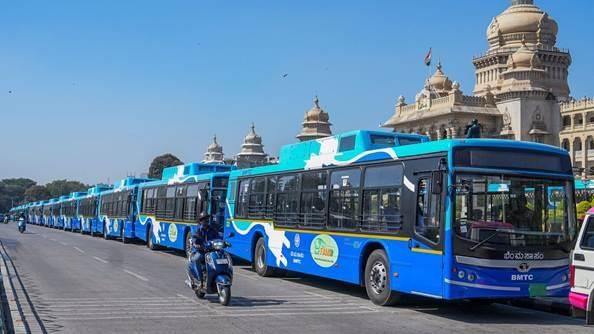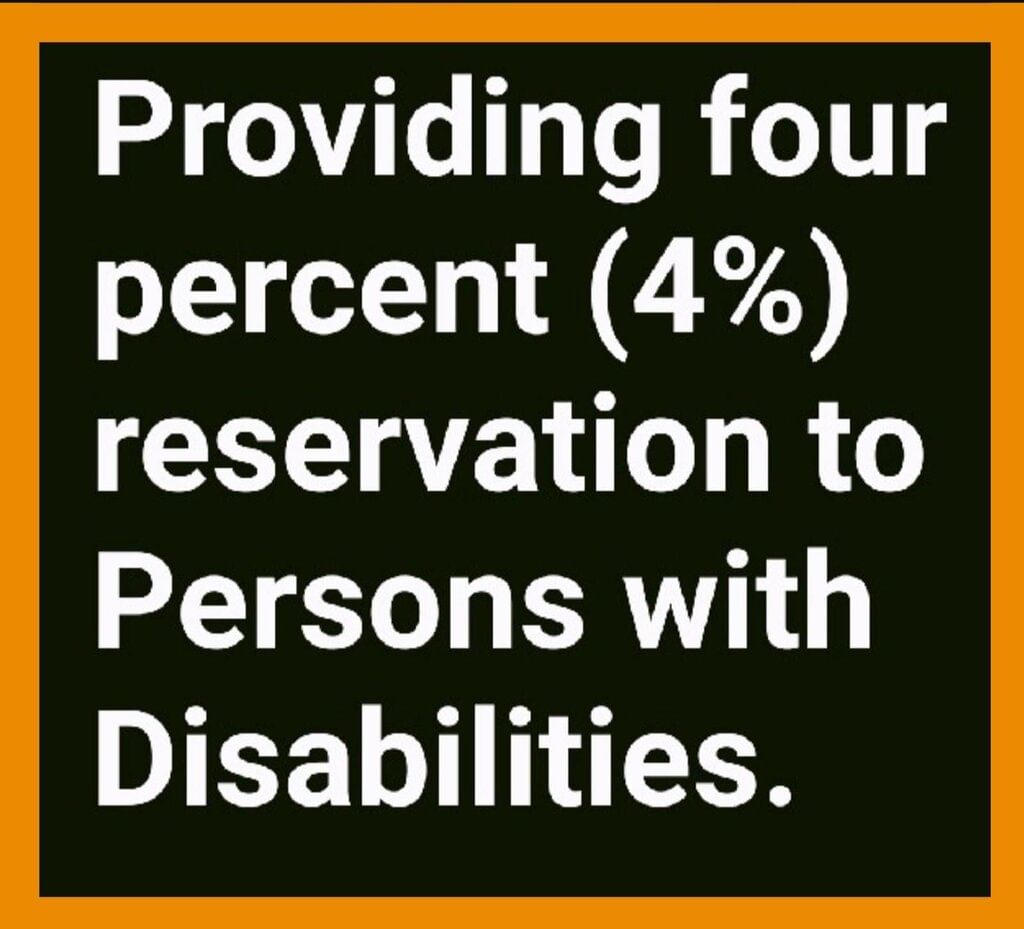UPSC Exam > UPSC Notes > PIB (Press Information Bureau) Summary > PIB Summary - 23rd May, 2025
PIB Summary - 23rd May, 2025 | PIB (Press Information Bureau) Summary - UPSC PDF Download
Major Cities Accelerate e-Bus Adoption Under PM E-Drive

Introduction
The PM e-Drive Scheme is promoting the use of electric buses in major Indian cities to make urban public transport cleaner and more sustainable. This initiative aims to improve mobility while reducing environmental impact in key metropolitan areas.
Relevance : GS 3(Environment and Ecology)
Policy and Governance Framework
- Centre-State Coordination: The scheme emphasizes the importance of collaboration between the Central government and states like Telangana, Karnataka, Delhi, and Gujarat. This coordination is crucial for the successful rollout and operational integration of electric buses.
- Strategic Vision: The initiative aligns with the government’s broader vision of clean and inclusive urban mobility, demonstrating consistency in sustainable transport goals.
- Financial Commitment:. significant allocation of ₹10,900 crore for 14,028 electric buses over two years reflects the government’s commitment and prioritization of this initiative.
Urban Transport Modernization
- Scale of Deployment: The planned large-scale procurement of electric buses in cities like Bengaluru (4,500), Hyderabad (2,000), Delhi (2,800), Ahmedabad (1,000), and Surat (600) showcases targeted efforts for urban electrification in major metropolitan areas.
- Modernizing Public Transport: The focus is on making public transport “cleaner, smarter, and more efficient,” indicating the integration of electric mobility with intelligent transport systems.
- Operational Readiness: The Ministry’s commitment to “timely delivery and operational readiness” highlights the importance of addressing implementation challenges such as charging infrastructure, fleet management, and maintenance.
Environmental Sustainability and Climate Impact
- Climate Goals: The initiative supports India’s objectives for sustainable transport and carbon emission reduction, aligning with national and international climate commitments.
- Pollution Reduction: The adoption of electric buses in urban areas is expected to significantly reduce air pollution and greenhouse gas emissions in densely populated cities.
- Innovation Drive: The scheme promotes the adoption of environmentally conscious technologies, reducing reliance on fossil fuels and enhancing energy efficiency in public transport.
Economic Growth and Social Benefits
- Job Creation and Industry Growth: The large-scale deployment of electric buses can stimulate domestic electric vehicle manufacturing, supply chains, and create associated green jobs.
- Public Health Improvements: Cleaner electric buses contribute to better urban air quality, which can reduce respiratory and cardiovascular diseases among the population.
- Social Inclusion: The initiative enhances public transport accessibility with modern and reliable electric buses, supporting equitable urban mobility for all citizens.
Regional Prioritization and Coverage
- City Focus: The targeting of rapidly growing and pollution-challenged cities like Delhi, Bengaluru, Hyderabad, Ahmedabad, and Surat demonstrates a data-driven approach to urban electrification.
- Geographic Balance: The inclusion of cities from different regions of India, such as the South (Bengaluru, Hyderabad), North (Delhi), and West (Ahmedabad, Surat), highlights the nationwide ambition and diversity of the initiative.
Technological Innovation and Future Mobility
- EV Ecosystem Development: The scheme boosts India’s electric vehicle ecosystem, including advancements in batteries, charging infrastructure, and smart grid integration.
- Smart Mobility Integration: There is potential for integrating app-based public transit, real-time tracking, and renewable energy-powered charging infrastructure into the electric bus system.
- Global Scale and Leadership: This initiative represents one of the largest electric bus deployment efforts in the world, setting a benchmark for other developing countries to follow.
4% Reservation in Central Government Housing for Persons with Disabilities

Introduction
A significant initiative by the Ministry of Housing and Urban Affairs has introduced a 4% reservation in central government housing for persons with disabilities. This move aims to strengthen inclusive governance and ensure equitable access to public services for individuals with disabilities.
Relevance: GS 2 (Social Justice, Housing)
Policy and Legal Framework
- Alignment with RPwD Act, 2016: The initiative aligns with the Rights of Persons with Disabilities Act, 2016, reinforcing legal requirements for equality and accessibility in housing.
- Government Commitment: This move reflects the government’s commitment to the Prime Minister’s vision of “Sabka Saath, Sabka Vikas” and the Sugamya Bharat Abhiyan, which aims to promote disability inclusion.
- Official Directive: The reservation policy has been institutionalized through an Office Memorandum by the Directorate of Estates, ensuring smooth implementation of the policy.
Social Inclusion and Empowerment
- Promoting Equity: The 4% reservation is designed to ensure that persons with disabilities have fair access to essential public housing, promoting their dignity and independence.
- Accessible Housing: The initiative supports the creation of physically accessible housing that meets the accommodation needs of persons with disabilities, facilitating their integration into mainstream urban life.
- Empowerment of Vulnerable Groups: By addressing the housing disparities faced by persons with disabilities, the policy strengthens social justice and empowers vulnerable groups.
Governance and Implementation
- Inclusive Governance: The policy reflects proactive government measures to integrate disability concerns into public service delivery, promoting inclusive governance.
- Operationalizing Rights: The initiative translates constitutional and legislative promises of equality into practical administrative actions, making rights tangible for persons with disabilities.
- Strengthening Accountability: By establishing clear reservation quotas, the policy enhances monitoring and evaluation of inclusion efforts in government housing schemes.
Broader Impact
- Catalyst for Change: The initiative sets a precedent for similar inclusivity measures in other government services and facilities, potentially influencing broader policy changes.
- Promotes Awareness: The policy raises public and institutional awareness about the necessity of accessible infrastructure and the importance of inclusive policies for persons with disabilities.
- Supports Sustainable Development Goals: The initiative contributes to Sustainable Development Goal 10 (Reduced Inequalities) and Goal 11 (Sustainable Cities and Communities) by promoting equality and sustainable urban living for persons with disabilities.
The document PIB Summary - 23rd May, 2025 | PIB (Press Information Bureau) Summary - UPSC is a part of the UPSC Course PIB (Press Information Bureau) Summary.
All you need of UPSC at this link: UPSC
FAQs on PIB Summary - 23rd May, 2025 - PIB (Press Information Bureau) Summary - UPSC
| 1. What is the PM E-Drive initiative and how does it relate to e-bus adoption? |  |
Ans. The PM E-Drive initiative is a government program aimed at promoting electric mobility in India. It encourages major cities to adopt electric buses (e-buses) as a part of their public transport systems. The initiative supports the transition from conventional fuel-based buses to electric vehicles to reduce pollution, enhance sustainability, and improve urban transportation efficiency.
| 2. How does the 4% reservation in central government housing benefit persons with disabilities? |  |
Ans. The 4% reservation in central government housing is a legislative measure that ensures that 4% of housing units developed by the central government are allocated for persons with disabilities. This policy aims to enhance accessibility and provide equal opportunities for individuals with disabilities in securing housing, thereby promoting inclusion and improving their quality of life.
| 3. Which major cities are leading the way in e-bus adoption under the PM E-Drive? |  |
Ans. Major cities such as Delhi, Mumbai, Bengaluru, and Ahmedabad are at the forefront of e-bus adoption under the PM E-Drive initiative. These cities have implemented various e-bus projects and are actively working to expand their electric bus fleets to reduce emissions and improve public transport.
| 4. What are the environmental benefits of adopting e-buses in urban areas? |  |
Ans. The adoption of e-buses in urban areas offers significant environmental benefits, including reduced greenhouse gas emissions, lower air pollution, and decreased noise levels. E-buses help in mitigating the impact of transportation on climate change and contribute to healthier urban environments by improving air quality.
| 5. How can citizens contribute to the success of the e-bus initiative and support persons with disabilities? |  |
Ans. Citizens can contribute to the success of the e-bus initiative by using public transport options, advocating for more e-bus routes, and supporting government policies aimed at sustainability. Additionally, they can help support persons with disabilities by promoting awareness, participating in inclusive community programs, and encouraging the implementation of accessible infrastructure.
Related Searches
















